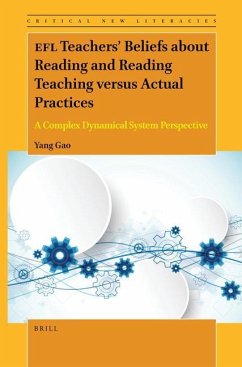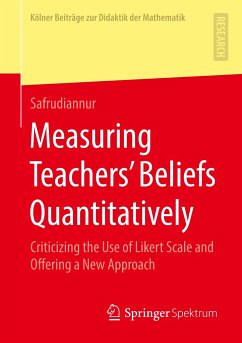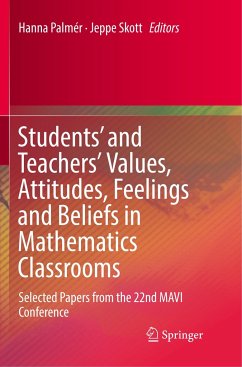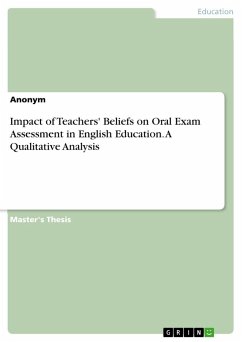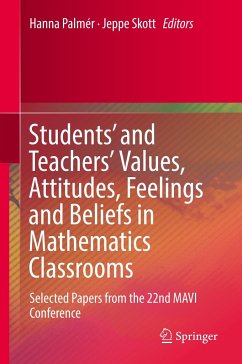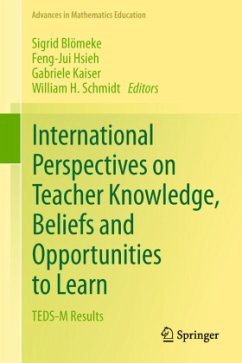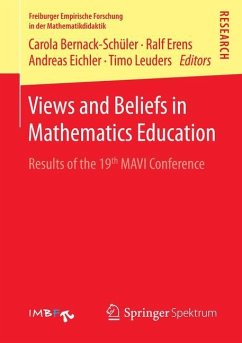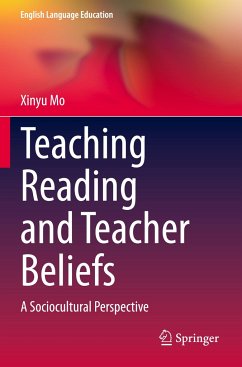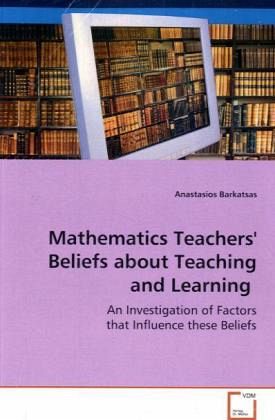
Mathematics Teachers' Beliefs about Teaching andLearning
An Investigation of Factors that Influence these Beliefs
Versandkostenfrei!
Versandfertig in 6-10 Tagen
52,99 €
inkl. MwSt.

PAYBACK Punkte
26 °P sammeln!
An understanding of the complexity of teachers'espoused and enacted beliefs is of paramountimportance in attempting to transform currenttransmission-oriented teaching practices. Takinginto consideration the recent interest expressed bythe mathematics education community in theimportance of values in teaching, and on theirinterrelationship to belief systems, such anunderstanding may constitute the motivation forfuture reforms. This book provides a typology ofmathematics teacher's beliefs regarding mathematics,mathematics teaching, learning and assessment, aninvestigation of inconsistencies betw...
An understanding of the complexity of teachers'espoused and enacted beliefs is of paramountimportance in attempting to transform currenttransmission-oriented teaching practices. Takinginto consideration the recent interest expressed bythe mathematics education community in theimportance of values in teaching, and on theirinterrelationship to belief systems, such anunderstanding may constitute the motivation forfuture reforms. This book provides a typology ofmathematics teacher's beliefs regarding mathematics,mathematics teaching, learning and assessment, aninvestigation of inconsistencies between thosebeliefs and their instructional practice, and theimpact various cultural aspects have on teachers'beliefs. The findings indicate that the broad socialand cultural climate within the classroom appears toimpact significantly on teachers' beliefs aboutmathematics, and mathematics learning, teaching andassessment. The findings of the study will be ofvalue to in-service and pre-service mathematicsteachers, school principals, policy makers,curriculum developers, teacher educators andresearchers.



